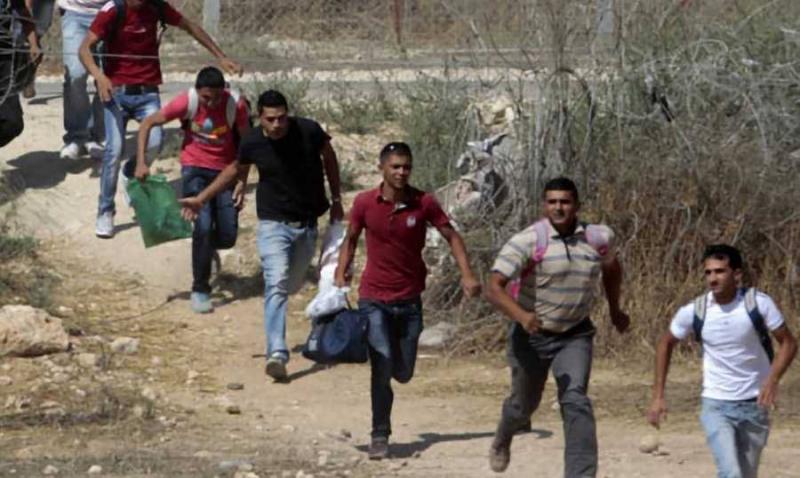In addition to the security risks and financial-economic costs associated with the Syrian displacement, social, demographic, and existential dangers continue to manifest in various crises, situations, and decisions. These primarily arise from European countries that do not consider the Lebanese context and their goal to eliminate a hypothetical migration of Syrian refugees from Lebanon to the old continent. They aim to make Lebanon a buffer zone to prevent the flow of refugees to neighboring European countries by sea, either through incentives while relying on the Lebanese army for this task, or through threats of displeasure from Europe, or by attempting to integrate Syrians into Lebanese society by any means, including aid and other tools.
Thus, although what Minister of Social Affairs in the caretaker government, Hector Hajjar, revealed recently is not new, its implications remain significant regarding the fears for Lebanon stemming from the issue of displacement. Hajjar stated in an interview with "Television Lebanon" that there is no government decision regarding the timing of addressing the displacement crisis, noting that the issue cannot bear procrastination. He revealed that there is a plan to replace the Lebanese population with the Syrian population across all Lebanese regions. He mentioned hearing a clear statement from an EU official during his tour in Brussels that the fate of Syrians in Lebanon mirrors that of Palestinians.
However, instead of the government responding appropriately to what one of its ministers disclosed, Prime Minister Najib Mikati quickly contacted Cypriot authorities following a Cypriot protest regarding the number of illegal migrants from Syria who recently arrived in Cyprus by sea from Lebanon. Mikati assured the Cypriot authorities that Lebanon does not accept exporting the displacement crisis to Cyprus. He also urged the Cypriot president to raise the issue of pressure on the EU to assist Lebanon in the process of repatriating illegal refugees.
Mikati's statements, along with special security information for "Nidaa Al-Watan," confirm that there is no decision to allow Syrian refugees to cross the sea towards Europe, thereby alleviating this burden from overwhelmed Lebanon. This is especially concerning since European ears have not heard the cries and distress signals of the Lebanese and have not taken any action since 2011 to rescue Lebanon from this existential threat, instead placing the burden of the Syrian crisis on it while assisting Syrian refugees to remain safe in Lebanon, providing only crumbs of aid to the Lebanese state and host community.
Security sources confirm to "Nidaa Al-Watan" that there is no chance of stopping the irregular migration of Syrian refugees by sea from Lebanon to Cyprus, indicating that the army's resources are limited in light of its required missions, particularly in controlling illegal borders and land crossings. They pointed out that waves of migration by boat increase during this time of year due to improved weather conditions, allowing for safer sailing without the risks of storms. This means that stopping or controlling all migrants is challenging, especially with organized smuggling gangs facilitating this migration.
Sources following this issue believe that the army has been doing its duty and more on this level for years. They indicate that the decision to open irregular sea migration for Syrian refugees is not under the military’s jurisdiction, nor can it bear this decision on its own; rather, it is a political and official decision that has not yet been made. The effective solution to halt this migration lies in a Lebanese-European political decision, with the solution resting on communication with Syria to repatriate these refugees, thus alleviating this burden from Lebanon, Cyprus, and other concerned European countries.
Domestically, following repeated crimes and the Syrian presence in various Lebanese regions, security sources confirm that the camps are largely controlled through continuous military raids and inspections, where the army confiscates weapons and drugs and arrests offenders or violators. The army continues to detain Syrian violators across various regions and hand them over to the General Directorate of General Security for repatriation to their home country.
However, the army is not the only responsible entity in this matter, and as the saying goes, "one hand cannot clap." The army commander continues to urge the government and all officials he meets to take responsibility concerning this issue and not to shy away from their duties, from citizens to municipalities, security agencies, and the judiciary.
According to exclusive information from "Nidaa Al-Watan," the Lebanese army repatriated 22,095 Syrians directly from the Lebanese-Syrian border during 2023 while they attempted to illegally enter Lebanon via unregulated crossings. In the same year, the army arrested 3,647 Syrians from within Lebanese territory during raids or following disputes, handing them over to security authorities. In the first three months of 2024, the army pushed back 3,357 Syrians attempting to enter Lebanon illegally and handed over 45 violators on Lebanese soil to security authorities. Thus, the total number of Syrians repatriated by the army to Syria within the span of one year and three months reached 29,144. The army ensures that repatriated violators are handed over to security authorities with their families, to avoid separation.




